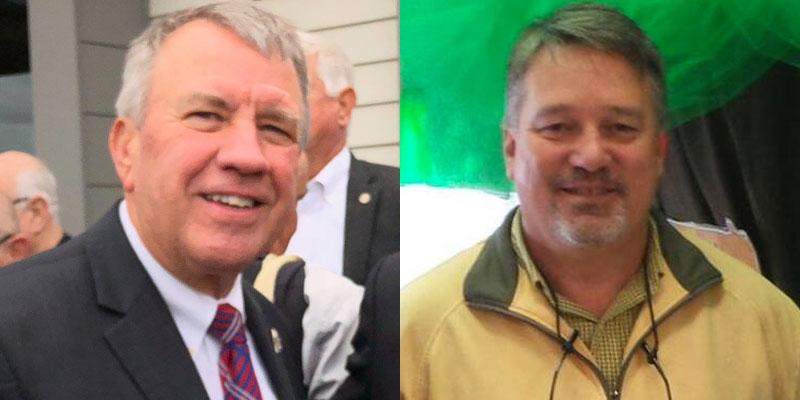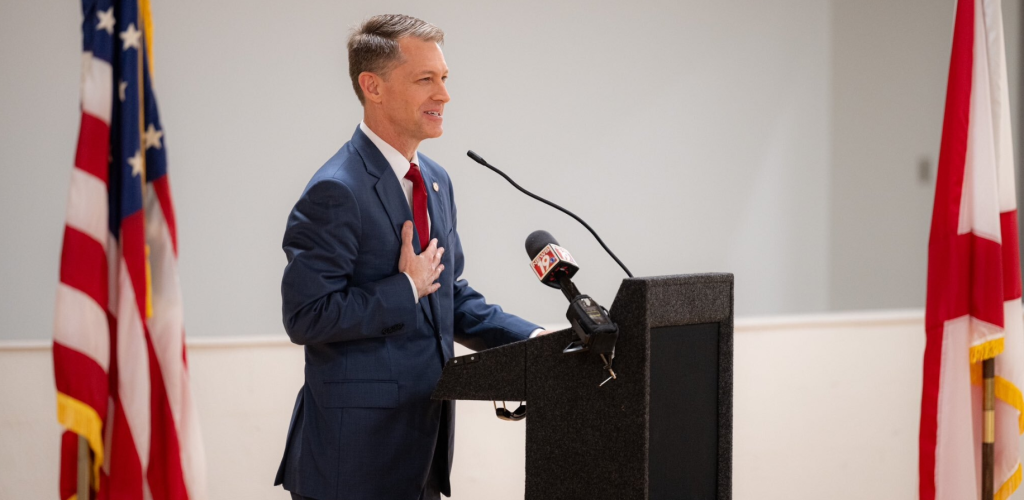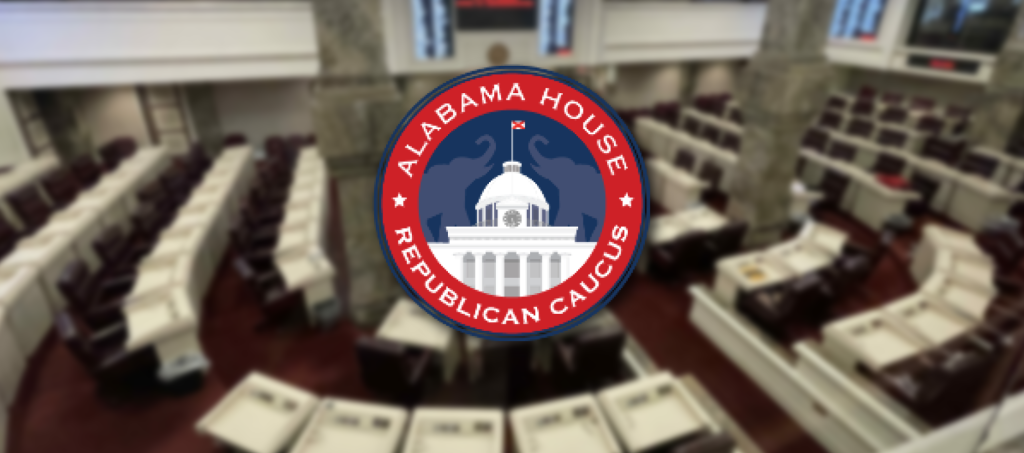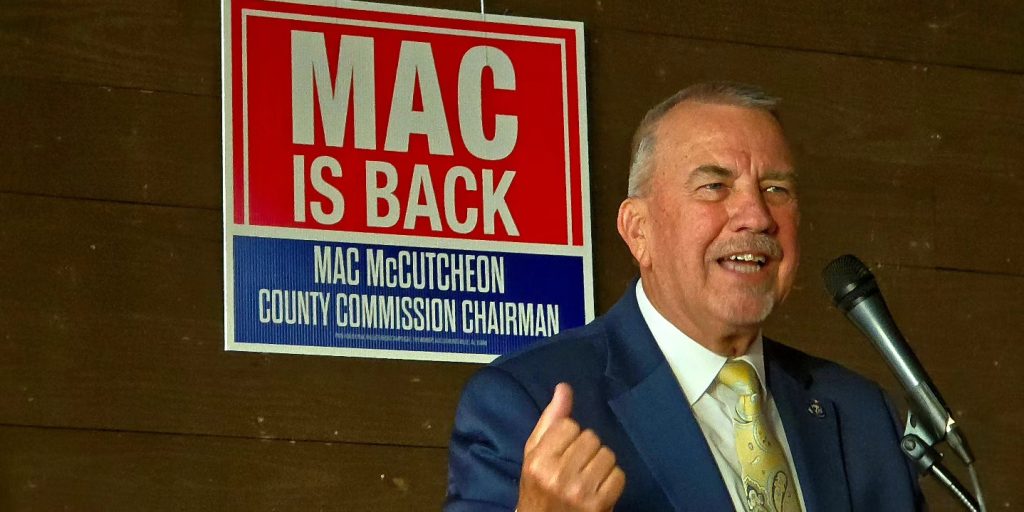Following a historic landslide election that resulted in the largest Republican supermajority ever in the Alabama House of Representatives, Yellowhammer News sat down with Speaker Mac McCutcheon (R-Monrovia) and Majority Leader Nathaniel Ledbetter (R-Rainsville) to discuss this “red wave,” the major issues expected to be the focus of the 2019 legislative session and their respective leadership roles and styles.
In the first of this three-part series, we touch on the tremendous electoral success of the Alabama House Republican Caucus, led by McCutcheon and Ledbetter, along with the valued work of their political team.
Check Yellowhammer News in the coming days for parts two and three.
The team
McCutcheon and Ledbetter were both effusive in their praise of the team that worked for months to achieve the 77-member supermajority, which is perhaps unsurprising in itself given the humble nature of the two top Republicans in the Alabama House. However, the full rundown and analysis of their work shows that the plaudits they have received are well-warranted.
Led by political veteran Steve Raby and campaign manager Scott Stone, who together formed the nucleus of the Caucus’ team, and boosted by the exemplary work of data guru Dalton Dismukes and the up-and-coming Rob Green, Alabama House Republicans virtually swept the competition.
Raby, who is a fixture on Yellowhammer Multimedia’s annual Power and Influence List, has a broad range of inside knowledge and relationships. He helped the Caucus secure the resources that were needed and worked diligently with the campaigns to make sure that those resources were allocated efficiently.
“He has so many contacts, he knew a lot of these people [involved in legislative races and state political fundraising] from previous work he had done,” McCutcheon said of Raby, applauding his leadership of the Caucus’ fundraising and with MACC PAC, the House GOP’s political apparatus.
Then there is Stone, who developed the Caucus’ political plan with McCutcheon and Ledbetter, while overseeing the logistics on a day-to-day basis.
“After Doug Jones’ election, everyone was talking about a blue wave, so we tried to get prepared and I think we went out and hired the best that we could find – Scott Stone’s group,” Ledbetter advised. “They did an outstanding job.”
Dismukes and Green joined the team closer to the June primary elections, with McCutcheon and Ledbetter praising their contributions as rising young political operatives, as well.
“We needed groundwork to be done, we needed some organizational work to be done, and that’s where Dalton Dismukes came in,” McCutcheon explained. “He became a very active part of the campaign. He became our statistician, he became the organizer of our door-to-door. He started going into the districts and working with the candidates.”
McCutcheon said that Green was integral in their grassroots efforts, including helping Dismukes with all of the numbers involved in door-to-door and phone banking operations.
“Rob became a very important part of our team,” the speaker added.
And, as McCutcheon and Ledbetter stressed, it was not just them and their political team that got the job done. It was their candidates getting out and working hard, while speaking about the issues that voters most care about, that could not have been replaced.
“For the members that have been elected now, it was a ‘we thing.’ We approached it from a team perspective. It was not ‘big I’s’ and ‘little you’s,’ it was all of us in this together,” McCutcheon emphasized.
Ledbetter added, “We had good candidates. First and foremost, you gotta have good people, and we did.”
Plus, these candidates had consultants of their own who played irreplaceable roles in the Caucus’ electoral success.
In an email, Stone commented, “As Speaker McCutcheon said, the success House Republicans enjoyed on election night was a team effort and that also includes the campaign consultants across the state that worked with the House campaigns. They did a great job and it was a pleasure to work with them. From the very beginning, in the fall of 2017, we started meeting with the consultants to make sure that lines of communication were open. Their input was taken seriously and incorporated into our effort. The Speaker’s team saw it as our mission to support the members’ campaigns and the work that their teams were doing. I thought we worked really well together. The consultants were essential to expanding our Republican majority and should be commended as well.”
The process
While the right people were in place, the House Republican Caucus also needed the right plan, as well as a good process to go about working the plan. This is where Stone’s leadership was especially essential, helping bridge the gap between strategy and execution. The biggest theme to note here is that every decision, every action item, was backed by hard data.
The plan that McCutcheon and Ledbetter identified early on was protecting their incumbents in primary races first. This came down to 17 contested primary races that they were involved with, and the results were resounding.
“If we had written a script, we couldn’t have written this any better,” Ledbetter shared.
McCutcheon and Ledbetter both highlighted that the team won 100 percent of these seventeen primary races.
“In the primary, we had some tight races there. Tight races that took a lot of work and we raised close to $1,000,000 to put into the primaries for our 17 House races,” McCutcheon said.
This primary success gave them momentum and experience that was crucial for the general election homestretch.
Using a tested process from the primary and data collected from digital media and polling, they then came up with their plan moving towards November.
From there, McCutcheon outlined, “We just set aside the races for November and went to work.”
A big part of their collective success was not only the amount of money raised (Ledbetter explained that on top of the $1,000,000 in the primary, the Caucus raised another $2,000,000 in the general), but how it was allocated. This is really where MACC PAC came in, with the political action committee paying for polling and social media advertising coordinated by Stone, taking advantage of bulk rates and saving money in the long run.
The PAC also distributed money to campaigns in notably tight races.
McCutcheon explained, “We were providing money as they had a need.”
He clarified that the contributions were not divided up by seniority or committee positions, but on who needed the help most to win.
“We managed the money well. Through that, it turned out to be very successful and we’re very thankful,” the speaker added.
Ledbetter echoed this, saying, “It was a team effort, and the members were good about that. The members understood if they were in good shape in the polling, that we would use the money somewhere where someone needed it more. That worked out well.”
The races
Besides campaign strategy and execution, McCutcheon and Ledbetter both spoke about how the booming economy under Governor Kay Ivey’s leadership, the national political climate and economy under President Donald Trump and other major issues of the day all benefited Republicans in the November House elections.
While both men stipulated that different districts’ data showed varying levels of interest in various issues, with some localized concerns popping up here and there, some of the nation’s biggest talking points drove Alabama voters to the polls.
“The Republican brand, what we’ve stood for – low unemployment, economic growth, pro-economic legislative work that we’ve done. I feel like some of the amendments on the ballot were good, because they represented a sense of moral values to the people of Alabama,” McCutcheon said, beginning to list major factors in the races.
He continued, “The pro-life amendment, Amendment Two, that was a help, because when I would go around and speak to people across the state, I would talk about the Ten Commandments, ‘In God We Trust,’ which was not an amendment but a piece of legislation we passed this year, and the pro-life amendment. I think these were things that resonated with the people. And it just reinforced the Republican brand that we had worked on.”
Voters did have D.C. on their minds as well, McCutcheon thinks.
“At the end of the day, in some areas, I think Washington helped us a little bit,” McCutcheon outlined. “With some of the circus that was going on up there during the campaign season, I think that was a benefit.”
“But people were responding to the issues we talked about, such as budget reform, looking at people’s tax dollars and how they’re being invested, people responded to that issue very well. And then if you tie that with a candidate that’s really worked their district, they’ve been in the community, they’ve tried to do good things for their community, I think all of those things linked together just resonated with the people powerfully and they turned out to vote,” McCutcheon added, before praising the statewide Republican ticket for constitutional offices led by Ivey.
“For the state as a whole, the economy certainly was an important issue. Protecting the borders was an important issue for the people of Alabama, as well,” Ledbetter further advised.
They also believe that the general election was a “referendum” on not only economy, but the overall positive direction of the state.
Ledbetter opined that the competitive June primary season in Alabama boosted Republican turnout in November, too.
“We had candidates [in June] in every pocket of the state that were putting out the word – the Republicans are thriving in power and we have the lowest unemployment rate the state’s ever had, we’ve got the best budget for education that the state’s ever put their money in, we’re putting money in the classrooms, we’re adding teachers, it was just a lot of great things happening for our state,” Ledbetter said.
With these positive sentiments lifting Republicans to an overwhelming victory on November 6, now comes four more years of the party governing in the Alabama Statehouse. In Yellowhammer News’ second part of this interview series, we will share what pressing issues McCutcheon and Ledbetter see coming up in the 2019 legislative session.
Sean Ross is a staff writer for Yellowhammer News. You can follow him on Twitter @sean_yhn













